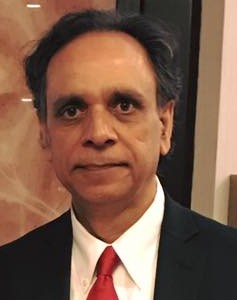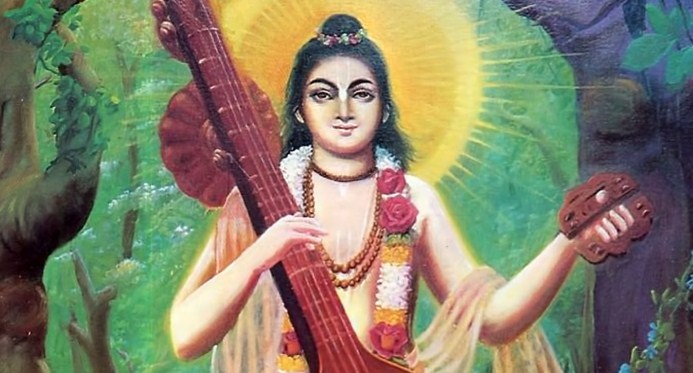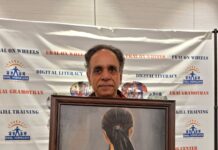By Upendra Mishra
More and more I read Upanishads, they reveal something new, something so simple and still so profound. With single-mindedness, they paint powerful stories with words, instilling the timeless wisdom of knowing one self, the truth, and abiding joy. In the end, however, every Upanishadic story leads to Self, to Self-Realization or to the Brahman.
The Brahman of Upanishads, however, is not God, and not the Brahma—the creator of the Universe as described in Hindu scriptures. The Brahman of Upanishads is you. Yes, you. Period. To realize that you are the Brahman, however, you must have a pure mind.

Knowing yourself is the best thing you can teach yourself. The only caveat, however, is that you must be brutally honest and truthful with yourself.
Those of us who are familiar with the Hindu mythology know a character called Narada, a sage who travels across the universe as a musician and storyteller. Although often casted as rumor monger in some stories, he is the most learned Vedic sage. He knows everything—the past, the present and the future.
Despite all his magical power, his travels around the world, his access to any king or sage any time and knowing everything, he is not beyond sorrow and is deeply lost in grief. Given his sharp and curious mind, one day he determines to find that how he can go beyond sorrow.
According to a story in the Chandogya Upanishad, Narada one day goes to sage Sanatkumara, and says: “I know the four Vedas–Rig, Yajur, Sama, Atharva–and the epics, called the fifth. I have studied grammar, rituals, mathematics, astronomy, logic, economics, physics, psychology, the fine arts, and even snake-charming. But all this knowledge has not helped me to know the self. I have heard from spiritual teachers like you that one who realizes the self goes beyond sorrow. I am lost in sorrow. Please teach me how to go beyond.”
Answers Sage Sanatkumara: “Whatever you know is just words, names of finite phenomena. It is the infinite that is the source of abiding joy because it is not subject to change. Therefore, seek to know the infinite.”
“I seek to know the infinite, Venerable One,” asks Narada.

After explaining how to know the infinite, Sage Sanatkumara concludes: “Control the senses and purify the mind. In pure mind there is constant awareness of the self. Where there is constant awareness of the self, freedom eliminates bondage and joy eliminates sorrow.”
Such stories might have been told a few thousand years ago, but they are so relevant even in today’s technology-dependent age. The basic ingredients of success, happiness and joy still remain being yourself and authentic. This is the only way up. There is no short-cut.
When school teacher Jack Canfield wrote his first book “Chicken Soup for the Soul,” it was initially rejected by 144 publishers. He kept pressing on, and finally a publisher took a chance with his idea and agreed not only to publish his “Chicken Soup for the Soul,” but gave him $1 million (yes $1 million) in advance for his book.
Since his first book, 47 books authored by Canfield have been on the New York Times’ Best Sellers List. I don’t know any author who has such an accomplishment. By the way, 500 million copies of Chicken Soup for the Soul has been sold worldwide.
Canfield’ rules for success are simple:
- Be yourself.
- Be authentic.
- Be persistent.
- Have positive attitude.
- Focus. Do not jump from one idea to another.
- Think big. Remember the power of thinking big.
- Everyone on this planet has the same amount of time in a day.
- Take 100 percent responsibility for your life. If you are blaming others and complaining, you are not taking 100 percent responsibility for yourself.
And then, here is his famous quiz: When was the last time you acknowledged and appreciated yourself?
“That’s right: YOU. Not your spouse, not your children, not your boss, co-workers or friends. Just YOU! Seriously, think about it! And if it’s been too long since your last pat on the back, then I want you to take the time right now to acknowledge and appreciate yourself for everything you’ve accomplished today, throughout the year, and in life,” says Canfield.
He adds: “Ask yourself: How many times have you succeeded in the past month? The past year? The past 10 years? Are you able to recall your successes as easily as your failures and missteps? This is not a selfish or egotistical act in the least. By taking the time to stop and appreciate who you are and what you’ve achieved—and perhaps learned through a few mistakes, stumbles and losses—you actually can enhance everything about you! Self-acknowledgment and appreciation are what give you the insights and awareness to move forward toward higher goals and accomplishments.”
(Mr. Mishra is managing partner of the Waltham, MA-based integrated inbound marketing and PR firm The Mishra Group. He writes about his three passions: marketing, scriptures and gardening.)















